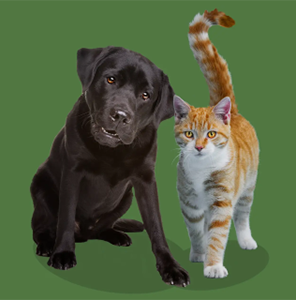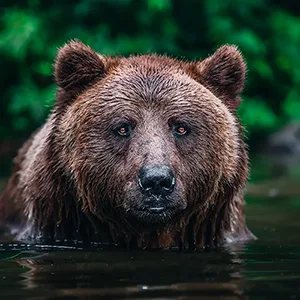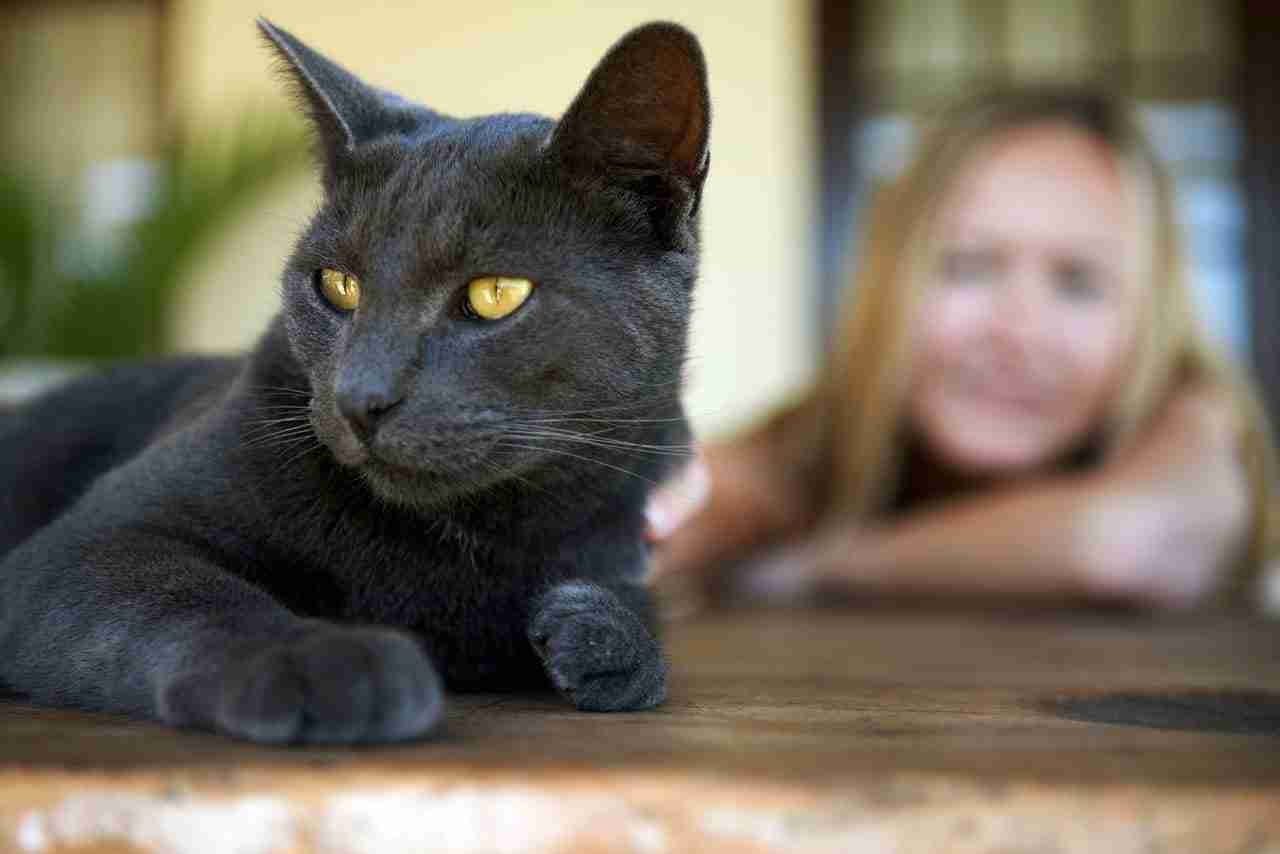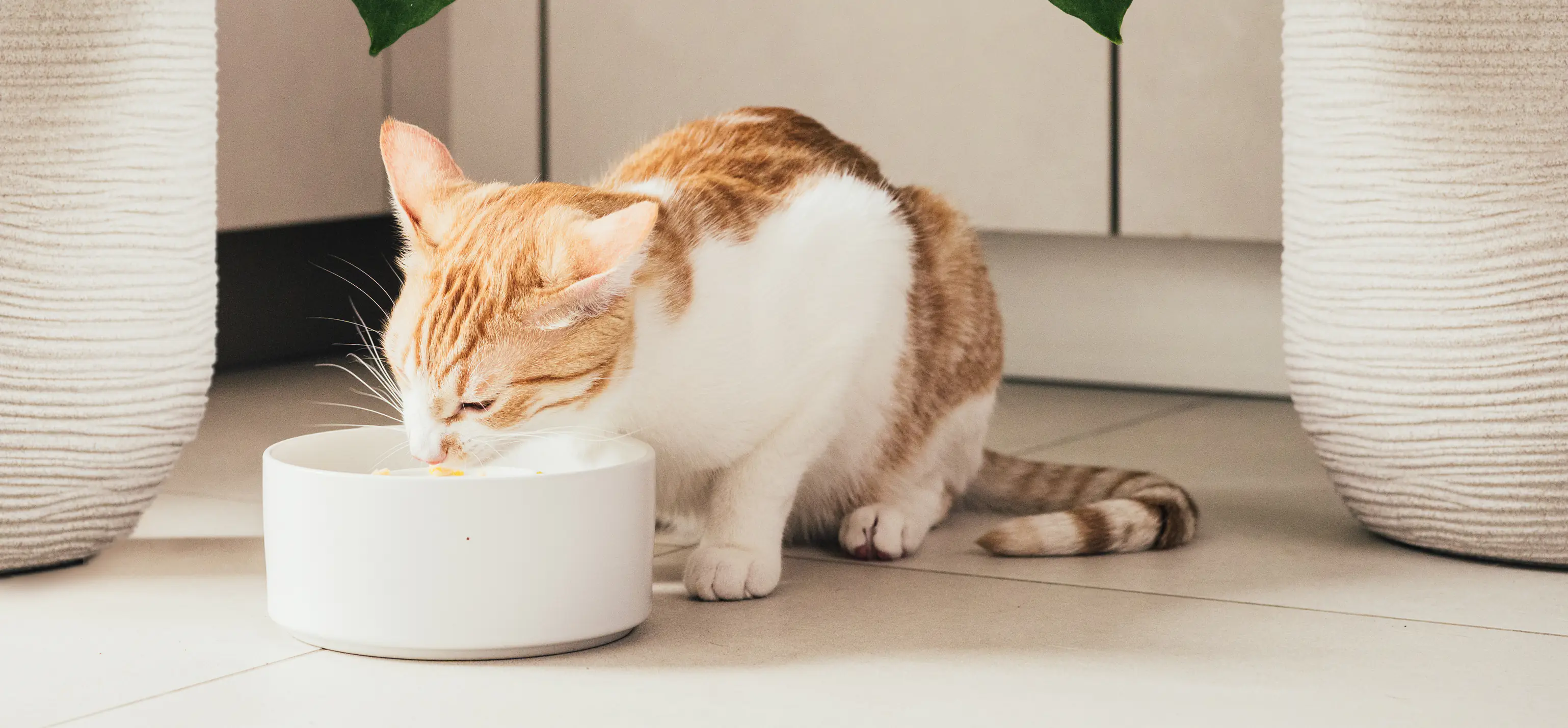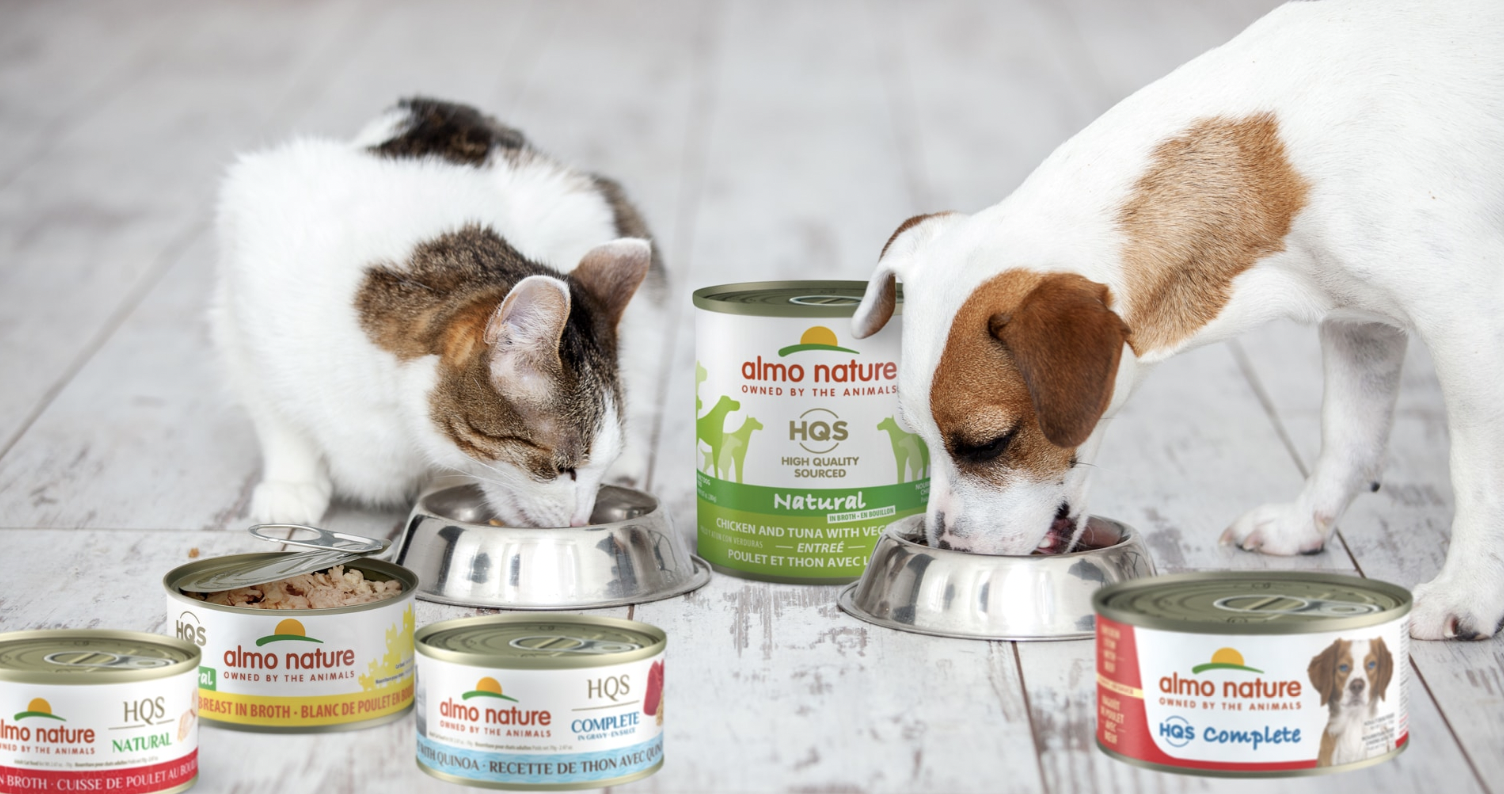We all have an impact on the planet's biodiversity.
And our current system is no longer sustainable.
We have over-stepped the boundaries within the relationship between humanity and the environment. In just 50 years, a mere blink in the planet's history, over 70% of Earth's biodiversity has been lost, with agribusiness playing a significant role in this issue.
Specifically in the food industry, the entire process of raw material sourcing, processing, production, distribution, consumption, and disposal is estimated to generate approximately 13.7 billion tons of CO2 annually, accounting for 26% of total emissions.
As a segment of the food industry, pet food alone is estimated to contribute 1.2% of these emissions, equating to 164.4 million tons of CO2 per year.
Now is the time for individual actions that support initiatives aiming for change.
Similar to other pet food companies, Almo Nature operates within a structured supply chain. This includes various stages, from meat and vegetable production to the slaughtering of animals and the processing of vegetables into ingredients. These ingredients are then transformed and packaged as pet food, relying on the infrastructure of the packaging industry for preservation and packaging.
Research is important to us.
We closely monitor the advancements in research concerning lab-grown animal-based proteins, plant-based proteins as substitutes for animal-based proteins, and insect proteins. It is important to highlight that the long-term effects of a diet based on alternative protein sources on animal welfare are still unknown. Therefore, Almo Nature takes a cautious approach, ensuring that the use of such ingredients is supported by sufficient evidence that they meet the true needs of cats and dogs.
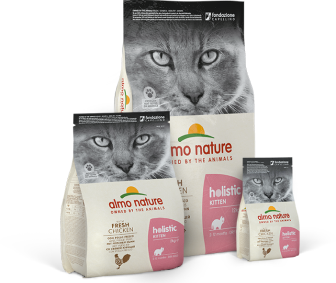
We conduct tests and explorations to minimize our environmental impact.
Regarding non-recyclable flexible packaging (dry food packaging), we have been conducting tests on new materials since 2020 in collaboration with our international partner, AMCOR Flexibles. These tests aim to achieve three objectives:
- Ensure the same level of hygiene and preservation quality as provided by the existing multi-material, three-layered non-recyclable packaging
- Make the flexible packaging recyclable by using mono materials
- Reduce CO2 emissions, water consumption, and energy consumption per unit produced
After the trial period, we have decided to gradually introduce a 100% recyclable polythene film as a replacement for the multi-layered packaging. This change will also contribute to reducing our environmental impact in the following ways:
We use 100% recyclable aluminum or tinplate packaging for almost all wet foods.
Our cat litter products are entirely plant based.
Several years ago, we discontinued mineral litters and embraced plant-based alternatives. One of our offerings is a 100% natural litter, while another, soon to be released, incorporates plant-based additives to enhance performance. Our litters are biodegradable and can be disposed of in household trash or composted. In the case of Almo Nature Soft Grain litter, it can also be safely flushed down the household toilet.
All revenues* are allocated to biodiversity.
Pier Giovanni Capellino, the founder of Almo Nature, and his brother Lorenzo donated 100% of the company to the foundation bearing their name. In the pet food industry sector, this is the only case in the world where a company's revenues, after costs and taxes, are directly donated to the conservation of biodiversity.
*after costs and taxes,

